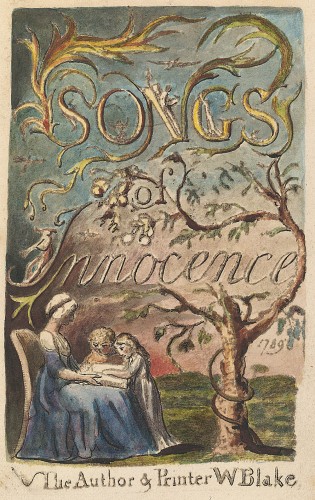
That didn’t take long! This review comes to us from Nathan Hart:
 The biggest surprise of the launch of U2’s new album isn’t the way it was released—it’s how good the songs are.
The biggest surprise of the launch of U2’s new album isn’t the way it was released—it’s how good the songs are.
It has been five long years since No Line On The Horizon, an album with some great moments but one which also revealed a band in artistic decline. In those five years, they knew they were one more misstep away from irrelevance. The reports weren’t hopeful: a new producer here, a scrapped album concept there. They seemed “stuck in a moment that they can’t get out of”, finally crushed under the weight of their own ponderousness.
So on September 9, 2014, when the band surprisingly released Songs of Innocence for free at Apple’s gargantuan iPhone 6 product launch, I was only sure of one thing: the music would be worth the price I paid for it.
Before I heard the songs, I noticed a clue that they might be special. On the release day, Bono said that in fact the album had been paid for, just not by the listeners. Apple Corporation paid the price. “I don’t believe in free music,” Bono said, “music is a sacrament.”
The power of Songs of Innocence is found within its sacramental atmosphere. There are holy moments throughout. With very personal and vulnerable lyrics, Bono has (probably temporarily) laid down his political megaphone. It feels less like a prophetic diatribe and more like a prayer of confession. For example, even in thinking about the very political “troubles” in Ireland on the closing track, he sings,
You think it’s easier to put your finger on the trouble,
when the trouble is you
And you think it’s easier to know your own tricks
Well, it’s the hardest thing you’ll ever do
Bono points his wagging finger away from the issue and onto himself. In other words, he’s saying, sin is not just something that has infected the big bad world out there, it is also the thing that has infected the self in here. I can’t recall any other U2 lyric that peers so honestly into the farthest corners of Bono’s own heart. Sure, he has been honest about his lustfulness and the origins of his messiah complex. But by vulnerably associating his own sinfulness with the very thing that he normally prophesies against, he offers us a lyrical sacramentology—a holy moment inviting divine redemption. Redemption comes in the same song, which later depicts a thrown lifeline, a rope, “something I could hold on to.” Then, redeemed, he can sing, “God now you can see me. I’m naked and I’m not afraid. My body’s sacred and I’m not ashamed.”
 In “Song For Someone”, which at first seems like a message to his wife Ali, he pulls a classic Bono-ism and reveals in the last verse that he’s actually/also talking to Jesus:
In “Song For Someone”, which at first seems like a message to his wife Ali, he pulls a classic Bono-ism and reveals in the last verse that he’s actually/also talking to Jesus:
I’m a long way from your hill of Calvary
And I’m a long way from where I was and where I need to be
If there is a light you can’t always see
There is a world we can’t always be
This theme of tension—between Calvary’s victory and a self-defeating world—is as familiar for U2 as the sound of Edge’s guitar riffs, but the personal intimacy in which it is couched is new.
There are many other examples throughout the album. The band has been in conversation with God for many years, but rarely so tenderly, so openly. One reviewer found the songs to be “safe”, but these lyrics are anything but safe. Bono is no longer hiding behind his prophetic megaphone or his costumed messiah complexities. He has given us an honest remembrance of his own loss of innocence and how he found redemption. Just as The Joshua Tree journeyed through the landscape of the American west, this album journeys through Bono’s redeemed soul. On “Cedarwood Road“, he sings,
A heart that is broken
is a heart that is open
It’s true, we don’t have to pay for the album, but now we know that it was not free. It came at great cost, not just to some line item in Apple Corp’s budget, but also to the lyricist who has opened his broken heart to us all.
Free to us but costly to him. Now that’s a familiar sound.
https://www.youtube.com/watch?v=aVyxmpG-zgI&w=600

COMMENTS
6 responses to “U2’s Songs of Innocence: Familiar But Surprising, Free But Costly”
Leave a Reply













One postscript thought: These songs are going to sound simply amazing live. Can’t wait for the tour.
Nathan – great to read you again! Hope all is well with the fam.
I’m wondering why we see so much dismissive language about what might be called political in U2’s body of work. Here: political “megaphone,” “prophetic diatribe,” “messiah complex,” and “ponderousness” used to talk about an artist who might at times have spoken with passion about the world “out there.” This is contrasted with “holy moments,” “personal and vulnerable,” “intimacy,” “tenderness.” Do we really only welcome an artist’s thoughts about his own failures and inner life?
Is it unneccessary or unexpected for an artist who grew up in a neighborhood where car bombs regularly murdered and maimed to turn his gaze outward as well as inward on his own heart? Not to mention what might enter one’s lyrics after a few tours in Africa. Can’t we welcome both sorts of insight? Perhaps a fair critique can be made about how the political is engaged, but I hope we don’t dismiss it all. The political may also be “a cry of the heart,” after all.
Tanya, thank you for your feedback.
You’re right, the article seems to favor Bono’s vulnerabilities while dismissing his prophetic voice. I think the reason I took that angle is because I have found his last couple albums lacking in the relatability department.
Please understand that I am long-time fan of Bono and his prophetic voice. I consider him a modern day Isaiah, the artistic equivalent of a Walter Brueggemann. So, I have a very high appreciation and respect for his prophetic voice, his megaphone if you will. But in his elder era, I think he has reduced himself to platitudes and catch phrases, lacking the emotional punch of his earlier years. To me, the megaphone is as powerful as the tenderness of the heart speaking into it. So this new album is a wonderful and refreshing return to earlier innocence and earnestness.
I agree, Nathan, these songs will rock live — much better than NLOTH songs did, if they ever tried. One of the differences is the fact that I actually want to listen to this album over again after hearing it the first time.
What I enjoy about this record is how they brilliantly reiterate their journey not just through telling the story lyrically, but they also reference previous musical material — sometimes not so subtly. I assume it’s more than just a lazy day in the studio, but it was more like a tip of the hat to the past. A recognition of the musical journey. The familiar licks — re-contextualized in a new song — make for a fresh perspective on the past.
The beginning of Iris references Ultra Violet. Iris sounds like a combination of City of Blinding Lights, Yahweh, Wire, and Magnificent, I’ll Go Crazy If I Don’t Go Crazy Tonight… several more throwbacks are present. So far, I like it.
Musical references to other bands and artists are also not so subtle. References to The Clash, Romones, Beach Boys, Devo… probably more. But they can actually pull it off without sounding like they’re being copy cats.
I love the album too, but the band was “in artistic decline” with NLOTH? That’s the album where Bono rediscovered his literary poetic skills that had mostly been missing post-Zooropa, and where the band rediscovered its experimentalism that had largely been missing post-POP. With NLOTH, they went into popular decline again, yes, but gained in artistry. It’s too bad that we never got Songs of Ascent.
Songs of Innocence gives us back the U2 of emotions huge enough to fill the entire universe, with the newer confessional aspect you mention. It is indeed an amazing album in its own way.